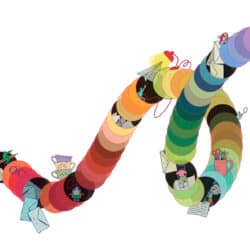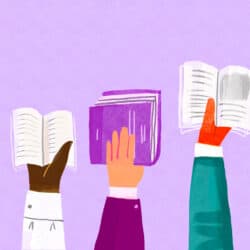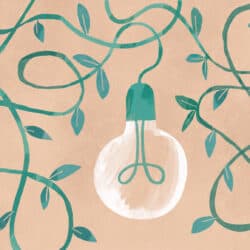The Liber Ero Fellowship program gives highly trained conservation and biodiversity scientists, not yet bogged down by teaching, the tools and resources to make a difference at the beginning of their careers.
When environmental philanthropists Dick and Val Bradshaw began asking biodiversity professors Wendy Palen and Sarah (Sally) Otto how they could help conservation biology back in 2012, they were told about how under-supported post-doctoral researchers are at a crucial stage of their careers.
Dick Bradshaw – an avid fly fisherman – was finding that rivers that once teemed with salmon were no longer teeming and that many salmon runs were low to non-existent. The Bradshaws wanted to turn things around.
They were already investing their personal wealth into conservation – at first through professorships and donations to non-profits – but they were hungry to make a bigger difference. “It was not so much an inspiration but a more practical desire to move the dial in conservation biology in Canada,” Dick Bradshaw says.
Palen and Otto suggested building a post-doctoral fellowship program to support conservation scientists at the most precarious – and at the same time most advantageous – stage of their early careers. “We had tea together and talked about their vision,” Otto says. “I said yes that same day, and we were up and running with our first cohort in March.”
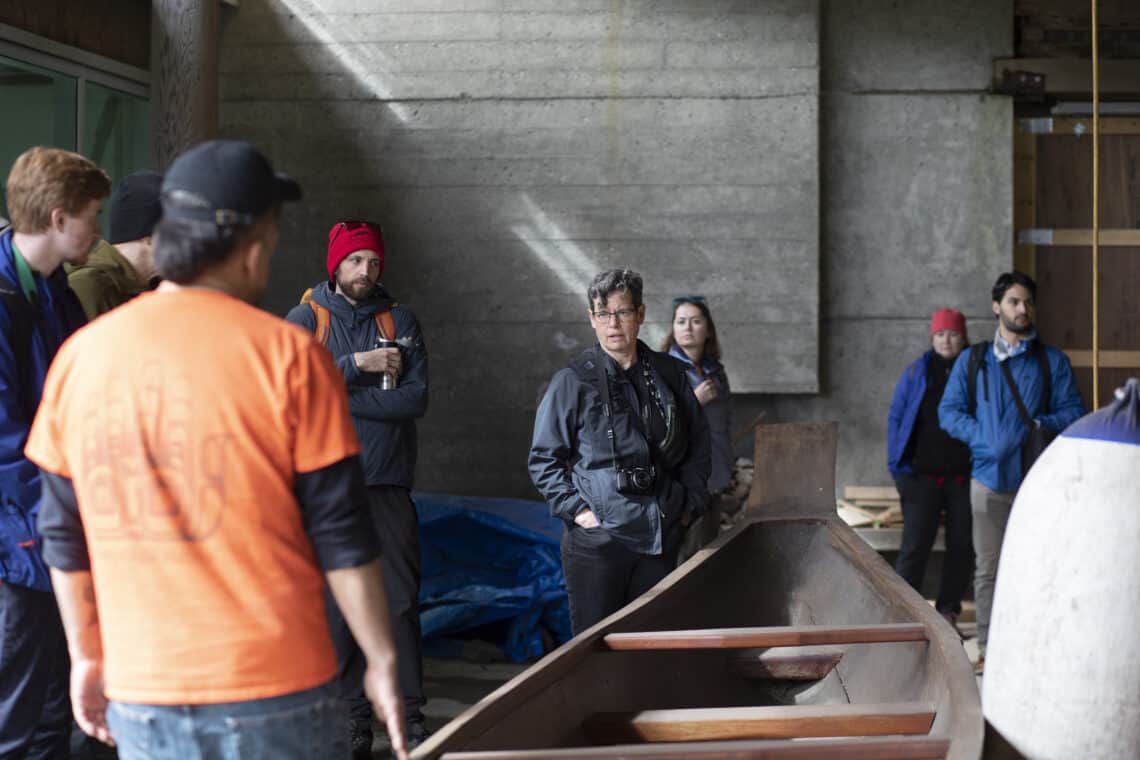
Ten years later, the Liber Ero fellows were invited to celebrate the fellowship’s 10th anniversary in Tlell, a small stretch of land sandwiched between the Tlell River and the Hecate Strait on the east coast of Haida Gwaii. I was lucky to be able to join them and learn about the fellowship and the impactful endeavours of its fellows and grasp its envisioned path for the future amidst a dynamically changing conservation landscape.
The Liber Ero Fellowship Program is co-led by Otto and Palen. Each year, the program welcomes four or five new post-doctoral researchers for a two-year fellowship. Fellows are paid a salary of $70,000 per year, are given media and policy training, and are invited to numerous retreats across Canada. Monthly “coffee hours” keep them connected, and there are plentiful opportunities for ongoing collaboration and mentorship between what Dick Bradshaw has dubbed the “forever fellows.” In 2021, the Bradshaws endowed the fellowship. “So what that means is, when we say you’re going to be a forever fellow, we can say it’s actually forever,” Otto says.
These are the people that can become the movers and shakers that we need in this world. Supporting them allows them to flourish in a way that I think would benefit not just conservation, not just biodiversity, but really in any area that needs change-makers.
Sally Otto, University of British Columbia
“Liber Ero” is Latin for “I will be free” – it’s the mandate that drives the program forward, in part recognizing that their fellows, who are highly trained, aren’t yet bogged down by having to develop and teach new courses to run their labs. “These are the people that can become the movers and shakers that we need in this world,” Otto says. “So supporting them allows them to flourish in a way that I think would benefit not just conservation, not just biodiversity, but really in any area that needs change-makers.”
It’s the only fellowship of its kind in Canada. Modelled on the Smith Fellowship Program in the United States, its collective cohort structure seeks fellows to ask “What is the end goal?” and to work backwards with support and experience from team leads, conservation mentors, and forever fellows. “I’ve never seen this level of networking with any other post-doctoral program,” says Otto, who describes other fellowships in Canada as “individualistic.” Beyond the program’s internal networking ecosystem, fellows are brought together on twice-annual retreats for workshops in media training and decision-making in public policy, including a trip to Ottawa to meet with politicians and government scientists, to help take their research from discovery to action. “It’s not enough these days to know the statistics, methodologies, the experimental design that you do in a PhD,” Otto says. Fellows are expected to figure out how to enact that change. “We’re here to cheerlead if you want to get somewhere,” she adds.
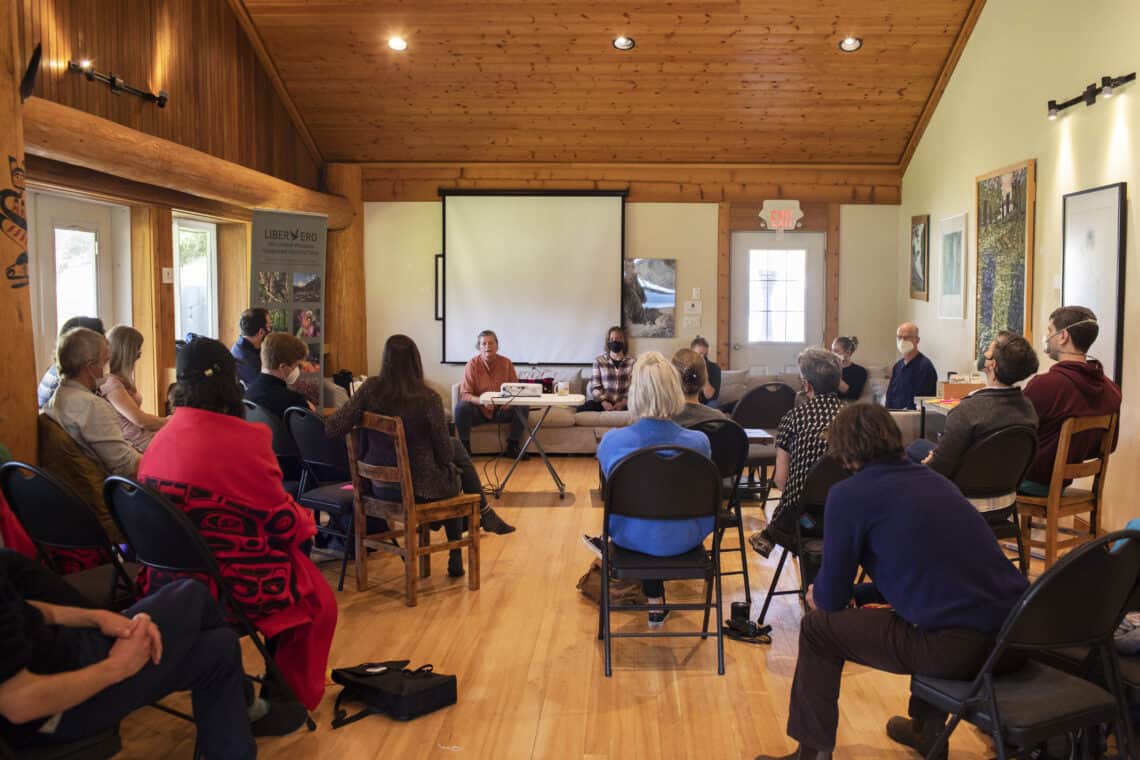
The model Otto describes doesn’t sound too extravagant, but post-doctoral fellowships across Canada are a drop in the ocean compared to what the Liber Ero program offers its early-career scientists.
On May 1, 2023, nearly 10,000 academics from 46 universities attended a national walkout organized by Support Our Science, a group of graduate students and post-doctoral scholars. They were demanding a pay raise – something that students in Canada haven’t seen for 20 years. Most graduates and post-doctoral scholars are paid through federal scholarships and fellowships, which set the national standard for what is considered “adequate” pay. For master’s students, it’s $17,500; PhD students receive between $21,000 and $35,000; and post-docs receive $45,000. It doesn’t exactly ooze thanks and gratitude to the next generation of scientists and innovators in Canada.
A quick search on the Natural Sciences and Engineering Research Council (NSERC) website informs that PhD students in receipt of the NSERC postgraduate scholarship of $21,000 per year for three years are able to “fully concentrate on their studies and seek out the best research mentors in their chosen fields.” Good luck.
The reality is that students without the financial means are either pushed out of the post-doc race or forced to split their time between multiple jobs to survive.
Since pay plateaued in 2003, the number of scholarships available has shrunk, while the number of graduates seeking them has doubled. This frightening level of scarcity has been flipped on its head as scholarships are marketed by NSERC as “prestigious.” The reality is that students without the financial means are either pushed out of the race or forced to split their time between multiple jobs to survive.
Louie Lopez, a 2023 Liber Ero fellow, faced multiple barriers when applying for a post-doctoral fellowship to continue his work in conservation biology. Lopez, originally from the Philippines with Taiwanese ancestry, moved from Taiwan, where he attended university, to Victoria, BC, to join his siblings. Despite wanting to stay close to his parents in Asia, Lopez was afraid of building a career in Taiwan because of its rising tensions with China.
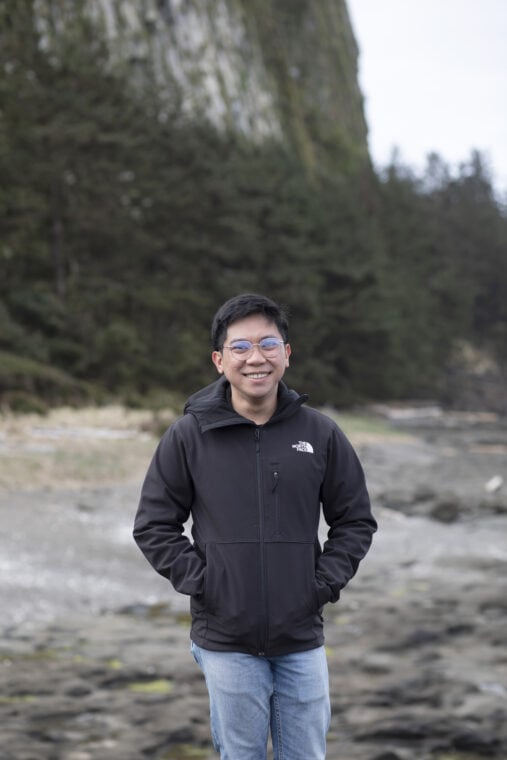
As a non-permanent resident, Lopez’s options were slim. He wasn’t able to apply via the usual federal research funding agencies – the “tri-council” route, which includes NSERC. He could have applied for the Banting Fellowship, which accepts international applicants, but he’d be competing alongside medical researchers, social scientists, chemistry and physics scientists, and more. For Lopez, the Liber Ero Fellowship was his only real option. “I only applied to Liber Ero,” he says. “It’s all or nothing for me.” Liber Ero is open to anybody whose research informs conservation and management issues relevant to Canada, so “you’re being ranked equally,” says Lopez, “because you’re all working in the same field.”
Many of the new fellows are trying to forge a new way of doing conservation science, in large part by listening to First Nations communities.
Sally Otto
At the University of Victoria, Lopez will document the long-term effects of oil-sands industrial activity in northeastern Alberta through Indigenous-led ecosystem monitoring with the Chipewyan Prairie Dene and Cold Lake First Nations. According to Otto, the biggest gains Canada is going to see with regard to conservation and biodiversity over the coming decades is in the development of Indigenous Protected Areas and the restoration of Indigenous practices for conservation and wildlife management. The fellowship is actively leaning into this conservation role. “And so to restore natural ecosystems,” Otto says, “we really must have First Nations not just consulted, but play a leadership role in conservation efforts.” Otto sees this as part of Canada’s COP15 commitment of 30 by 30 – to protect 30% of Canada’s land and water by 2030. “Many of the new fellows are trying to forge a new way of doing conservation science, in large part by listening,” she says. “By figuring out what are the priorities of First Nations communities and aligning their research with those goals.”
One fellow setting the stage for Indigenous-led conservation is Ally Menzies, who descends from the Red River Métis in Manitoba. Menzies’s 2022/2023 Liber Ero project supports three First Nations in Manitoba to develop their own Indigenous Guardian programs that will collect data on moose – whose numbers are declining in much of central Canada – including where and how many there are over time. Her goal is to build a sustainable program that the communities can not only uphold but that can feed into provincial government decisions and, eventually, co-management decisions.
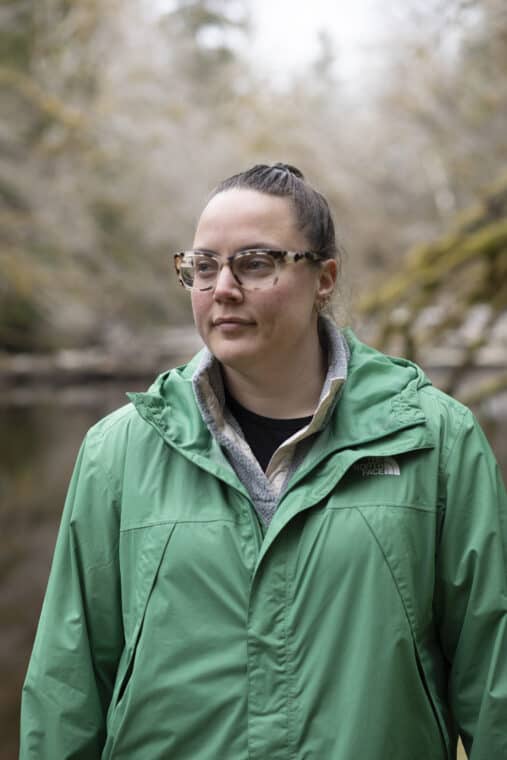
“I think conservation is a lot more about people than we give it credit for,” Menzies says, “and a lot more about human behaviour and human relationships with each other and with the land.” Menzies is attempting to bring together Indigenous knowledge and Western science perspectives to address her concerns. This amalgamation of knowledge systems, coined “Two-Eyed Seeing” by Mi' kmaw Elder Albert Marshall, has been heavily theorized, particularly in biology, but how to achieve it in practice is still relatively unknown – something else Menzies hopes to address through her Liber Ero project.
Fellowships like this are important because they provide support to people who need it to be here. And I think we’re going to need all the minds in the world possible to solve these big issues.
Ally Menzies, Liber Ero fellow
Similar to Lopez, the Liber Ero was the only fellowship Menzies applied for. “It was the only one where I didn’t have to pitch my project and myself in any other way except what was true to the project and myself,” says Menzies, whose project bridges traditional science and ecology with social science and Indigenous methodologies. The interdisciplinary nature of her project doesn’t align with typical funding bodies that require a more siloed approach. “This fellowship really fills a gap in that way, realizing that conservation isn’t just about natural science, or just about Western science,” she says. “They understand that it’s about people, it’s about laws, it’s about policy, it’s about all these different things and everyone has a role to play – and I think that’s what makes it really unique.”
It’s not only hard to find funding for research that collaborates with First Nations, as Menzies’s does – it’s not encouraged at the academic level. According to Otto, embedding a listening phase into a research program doesn’t align with the traditional academic trajectory – and so far isn’t required in order to achieve tenure. “So I think we have to change,” she says. “We have to make space for that relationship-building to be rewarded. And we can do that with the fellowship.”
When you take very skilled people and then give them the tools to make a difference at the very beginning of their career, it’s really a whole lifetime of paying it forward.
Sally Otto
Otto witnesses a trickling effect from the fellowship. “When you take very skilled people and then give them the tools to make a difference at the very beginning of their career, it’s really a whole lifetime of paying it forward,” she says. And the fellows have gone on to achieve diverse accolades, from writing books about climate change, to becoming decision-makers in government.
Successful Liber Ero candidates are not measured by the number of papers they publish each year – a culture that dominates much of academia – but by the difference they want to make. Before University of Victoria post-doc Aerin Jacob applied to the fellowship in 2015, she knew she wanted to make a difference in the world with her science, “but at the same time there is this pressure to do the discovery science, to do fundamental research, to be novel – the first to discover something, publish in Nature, and so on.” Jacob felt a sense of release when accepted to the fellowship. “You weren’t just sitting alone in your office and emailing things to people in the hope that they might use it,” she says. “You were explicitly expected to, and supported to, collaborate with people, and it was very, very exciting because there was nothing else in Canada like that at the time.”
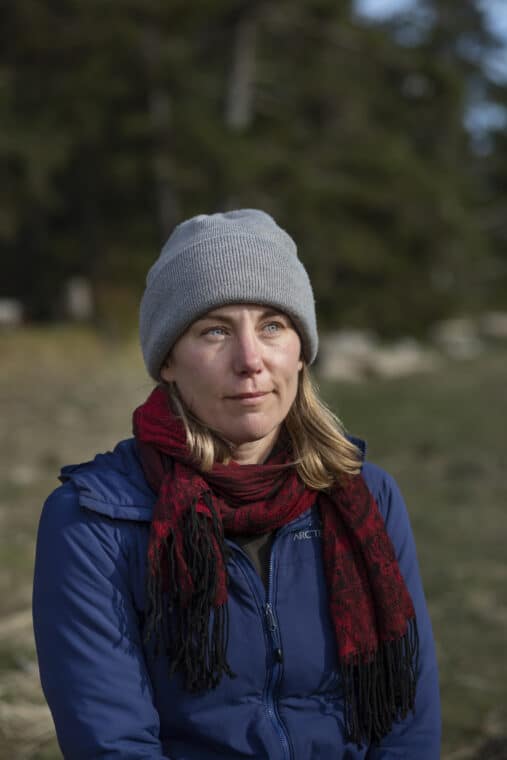
Jacob has carried her passion for collaboration into her career. She worked for six years with the environmental non-profit Yellowstone to Yukon, where she engaged legal scholars, professional communicators, conservation practitioners, government, and advocates to ask how the region – its people, wildlife, and natural resources – can be better supported. She is now at the Nature Conservancy of Canada, where her job includes leading a graduate student fellowship program informed by her experience as a Liber Ero fellow. She wishes more non-profits and the communities they serve knew how to work effectively with scientists. “It’s not about cherry-picking the data,” she says. “But science helps us to see if what we’re doing is making the difference that we want.” Jacob admits that it can be hard for non-profits to navigate an academic partnership without having gone through graduate school. “It’s about talking to graduate students, prospective post-docs, and professors who might be a good fit for your organization, and that can be tricky to figure out,” she says. “So I wish more people knew how to do that.”
Collaboration and collectivism are at the heart of the Liber Ero Fellowship. And it’s no surprise – one look at the news is enough to see how paralyzing it must feel to work in ecology in 2023. At the retreat, conversations about the reality of ecological grief are not uncommon. “The collaborations I see here give me hope for the future when there’s not a lot of hope to be found,” says one fellow. “The one place I know I can come back to where I know people will have my back is this group,” says another.
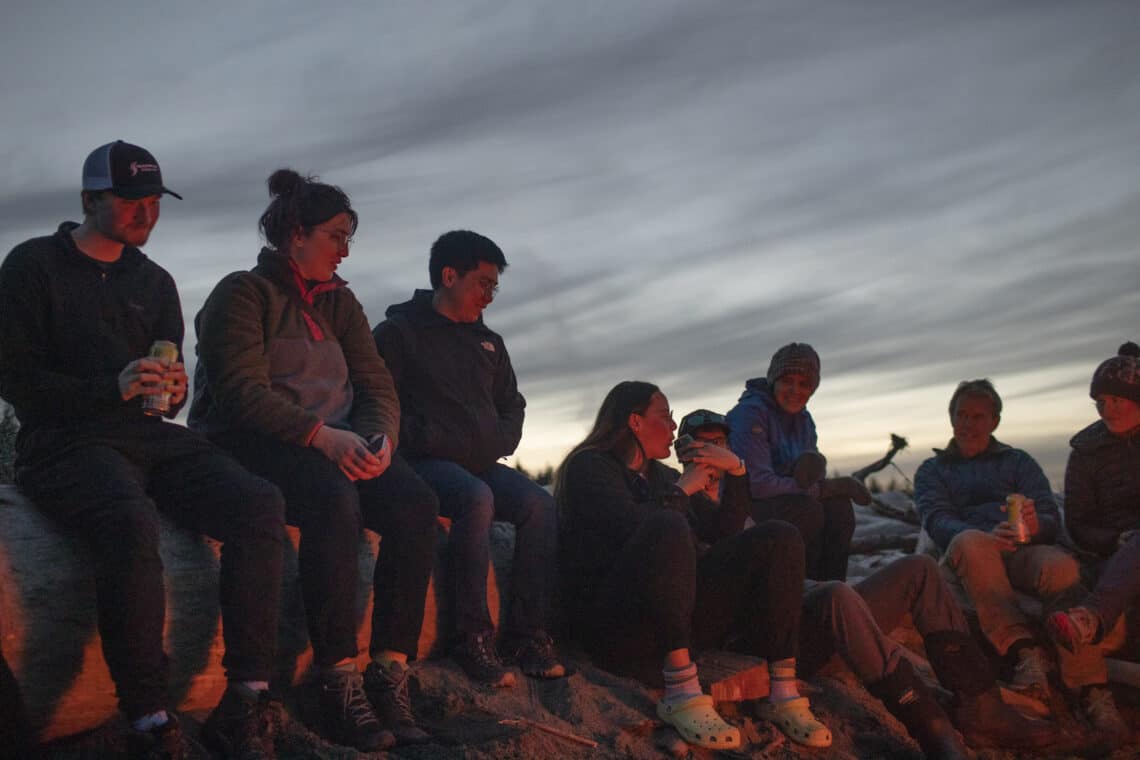
I ask Menzies why an ecology and conservation fellowship like the Liber Ero program is important. “Of course we need doctors and we need lawyers and we need teachers and they’re all extremely important,” she says. “But none of us will be here if the world falls apart.” If it weren’t for Val and Dick Bradshaw, the problems Canada faces in ecology would be left solely to the most inherently privileged in the country. “Fellowships like this are important because they provide support to people who need it to be here,” Menzies says. “And I think we’re going to need all the minds in the world possible to solve these big issues.”
